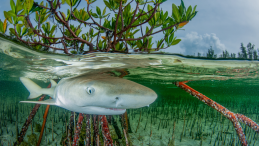Plastic pollution is one of the biggest environmental problems caused by humankind. The data is alarming, with estimates of at least 8 million tonnes of plastic ending up in the oceans yearly, and by 2050, there will be more plastic than fish in the oceans. Plastic production keeps increasing faster than the world population growth and many impacts of plastic pollution on human health and the environment are still unknown. Besides, nature suffers from harming animals and destruction of coral reefs, reduction of biodiversity, transportation of invasive species. Patterns of production and consumption of plastics need to change and at the global level. Common approaches are therefore needed to better govern the waste management sector of plastics and new economic-based instruments established. In particular, the project is rooted in the necessity for developing plastic taxation guidelines for a more sustainable design of the Korean legislation on plastic management.
This project is based on the request of the government of the Republic of Korea and is financed by the Korean Environment Corporation (K-eco).
- Project Manager
- Serena Caucci Minjeong Choi



